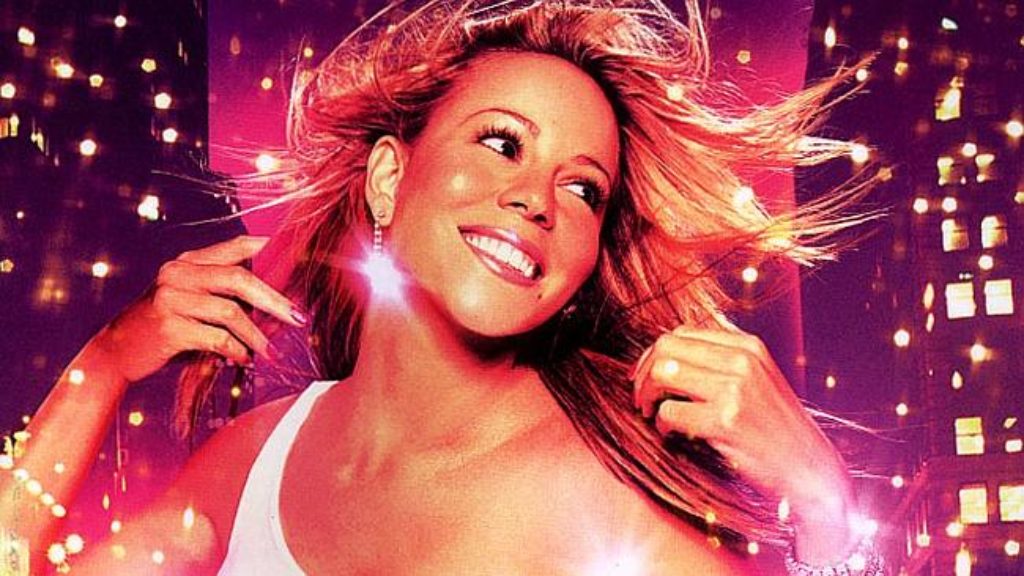
Screenwriter Cheryl L. West must have taken copious notes in Script Writing 101 when it was explained that an emotional family reunion can add greatly to a story. Sadly, she was apparently absent the day other key elements were taught. Here’s the basic plot (a generous use of the term, here). At the beginning of the movie, Billie Frank’s mother is a nightclub singer and a drunk. Due to her alcohol abuse, she gives up her daughter to the State. At the end of the movie, a now-sober mother (who plays no other role during the entire film) and daughter are reunited.
Those two sequences occupy barely eight minutes of screen time.
To fill the other 97 minutes, West writes in details of Billie’s burgeoning music career. After the 12- or 13-year-old Billie is sent by her mother to a State-run home, the film fast-forwards about 10 years to 1983. Billie is now a fledgling performer. She and two friends, Louise and Roxy, become backup vocalists for a not-so-talented R&B singer named Sylk. It’s not long before Dice, a disc jockey and producer, realizes Billie is the most talented of the group. As Billie and Dice begin orchestrating a career path, the pair fall in love—have sex—and move in together. Life moves forward. Love fades after an argument. And they move out again. Desperate to make it work, they plan to reunite. Then Dice is murdered. Of course, Billie gets the news of her beau’s demise just as she’s preparing to go onstage at Madison Square Garden. Believing the show must go on, she performs despite the tragedy. And that’s as close as Glitter ever gets to nobility or poignancy!
positive elements: Despite being abandoned by her mother, Billie searches for her, and eventually finds her—sending an affirmative message about the mother-daughter bond. When Billie’s career begins to take off, Dice objects when she’s objectified by male dancers (they caress her breasts). To him, onstage antics like that make Billie no different than “Titsie the porn star.” Unfortunately, Billie sees such sensual elements as a necessary part of developing her career. At the film’s end, Billie lectures her audience, “Don’t take anybody for granted.”
sexual content: In her early days as a fledgling artist, Billie performs in various clubs—some with gay themes and others with a Mardi Gras feel. Billie and the other backup singers wear outfits that resemble lingerie more than costumes. Sensual dancing includes inappropriate touching. Roxy asks to be put in a video so she can “showcase [her] sensuality” and wears a certain outfit because “it shows more of what I got.” Dice invites clubbers to “make love to the DJ.” Dice and Billie get tangled in the sheets (shots before and after the act imply intercourse). Afterwards, with covers on, Billie offers an excuse for inexperience (“I don’t do this”), to which Dice responds jokingly, “I can tell.” Billie’s outfits are usually low-cut and revealing, despite the filmmaker’s flimsy attempts to moralize against using sexuality to boost careers. A video director justifies a steamy video with, “Sex sells. She’s hot and that’s how you sell records.” Sadly, this scene mirrors Carey’s own music career more than it sends the intended message that the music industry is a dirty business.
violent content: In an argument, Billie slaps Dice. While riding in a limo, a drunk Dice pushes Billie. Walker threatens Billie and grabs—then squeezes—her face to reinforce that he means business. In retaliation, Dice assaults Walker who in a later scene gets revenge by shooting Billy at point-blank range (the depiction of which is disturbing, but not bloody).
crude or profane language: One f-word and a handful of s-words top the list of more than a dozen profanities. “Oh my God” is used a few times as an exclamation.
drug and alcohol content: Despite the fact that Lillian Frank’s alcoholism is made to look problematic, alcohol flows throughout. Billie and Dice drink at a club and the couple drink on a dinner date (the waiter brings Dice’s “favorite” bottle). After signing a record deal, label moguls toast Billie with champagne. Dice gets drunk in a limo, making a complete idiot of himself. Roxy and Billie’s publicist drinks before a concert. partyers are shown smoking pot in the background of scene outside a nightclub. Drunk, Lillian drops a cigarette that causes a house fire. Dice smokes frequently.
other negative elements: Viewers are led to believe that the film’s pivotal moment occurs when Billie agrees to move in with Dice. At no time during the film is marriage ever considered. In fact, there’s an underlying feeling that by ignoring it, perhaps it’s irrelevant. There’s also a subtle message that a life of superstardom—while not beyond problems—is in and of itself such a high calling that it somehow offers purpose and meaning.
conclusion: A vanity piece for Mariah Carey? Obviously. A challenging role? Hardly. She carries her part convincingly, but it’s not much of a stretch for a teary pop diva to play the role of a teary pop diva.
Looking at content issues, Mariah’s PG-13 movie leans more toward the PG side than the R, and could have dropped the “13” with moderate editing to both language and the one sexual encounter. That won’t soothe discerning families much, though. Dangerous sexual ideals, a wobbly worldview and foul language take most of the luster out of Glitter.
